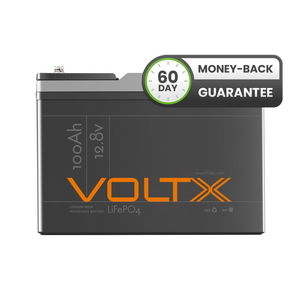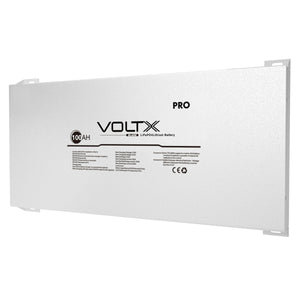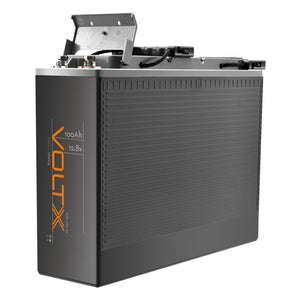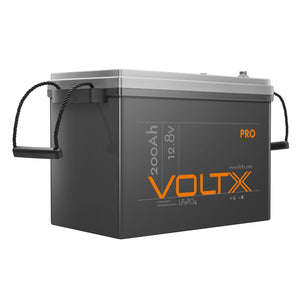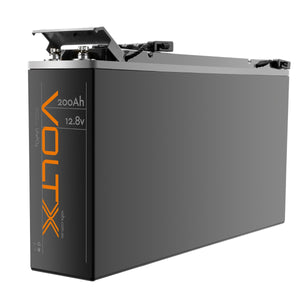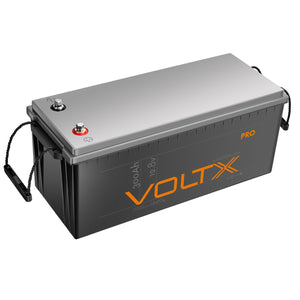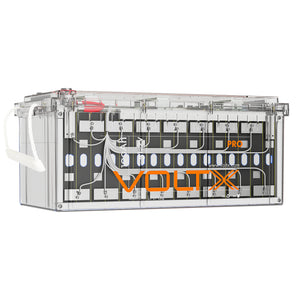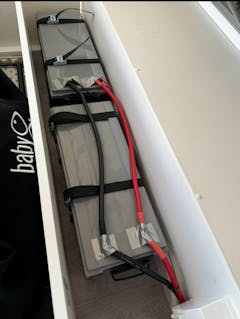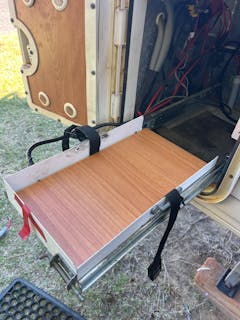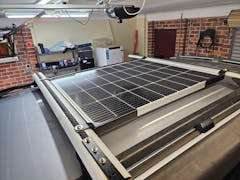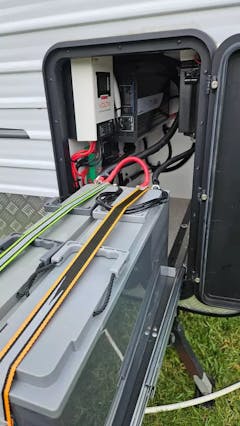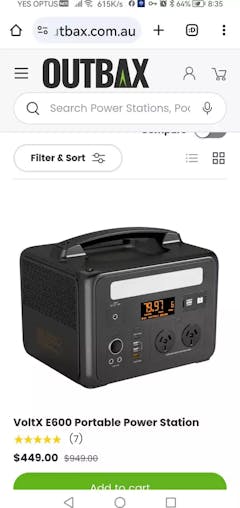Camping is fun and all-as long as you don’t get stuck without power! This is why it's necessary that your portable power source is reliable whether it's an inverter generator, solar panel, or battery. If you're bringing a battery with you, better go for deep cycle battery packs, preferably lithium batteries or LiFEPO4. Deep cycle batteries and LiFEPO4 have their separate benefits and when put together in a compact, deep cycle lithium battery, you get the best camping companion that is sure to keep all your appliances up and running smoothly.
Is a Deep-Cycle Battery Good For Camping?
Deep-cycle battery packs are ideal for camping, recreational vehicles, and even for boats because of their improved efficiency that lets you store and use power more effectively. Unlike car batteries that give off short, concentrated bursts of power, this type supplies a lesser but more consistent power output that allows for an extended run time. Additionally, using a deep cycle battery for camping has several other perks as well. For one, they are suitable for use in electronics or appliances with high power demand. The overall lifespan of a deep cycle battery is also longer as it is designed to be repeatedly charged and discharged without resulting in damage.
Among the most common type of deep-cycle camping batteries is the Absorbed Glass Mat or AGM battery. These are characterised by thicker plates and denser active material and are a popular choice among Australians too. AGM batteries require no maintenance and are sealed against fumes or leakage, and they are built to withstand any temperature condition. While this is a great alternative to traditional lead-acid batteries, the best deep cycle battery for camping would still be the lithium iron phosphate battery or simply LiFEPO4.
LiFEPO4 stands out among other camping batteries in the market with its higher capacity and lightweight structure. It's also considered the safest battery with its non-toxic components, incombustible form, and built-in battery management system (BMS). Reliable up to 80% discharge rate, this is the lithium battery pack you want to bring on any camping trip as it reduces the usual risks of operating a battery while providing you with a smooth power output that will last throughout your entire trip.
How Long Does a Deep-Cycle Battery Last?
When camping, most 12V deep-cycle batteries run for two to three days. This is under normal conditions which include powering common camping appliances and electronic devices like lights, refrigerators, and mobile phones. This time can also be extended by conserving electricity and shutting off appliances that are not in use. In terms of cycles, this will depend on your battery's state of charge. A fully topped up battery is at 100% but a dead battery does not necessarily mean a 0% charge. If you want your deep-cycle battery to last for a long time, you should keep them above at 50% state of charge, which is equal to around 1500-2000 cycles. If you charge them below 50%, the number of cycles is cut by half, and when you charge at a lower rate, the total lifespan of your battery decreases even further. Of course, for a more certain answer on how long your battery will last when camping, you also need to calculate your battery's run time by determining the appliances you want to power and how long you are planning to go off-grid.
How Do You Charge a Deep-Cycle Battery?
Deep-cycle batteries can always be recharged to a brand-new state. When topping up your battery, the first thing you need to do is to prep it by examining for any existing damages like cracks and corrosion. Next, select the appropriate deep-cycle battery charger and check the wires and connectors as well for maximum charging efficiency. Contrary to traditional beliefs, you should never let your battery drain completely before charging it as this can significantly decrease its life. At the same time when you charge it, make sure you don't overcharge because it diminishes capacity and may cause issues in the long run. You can use a timer for this but if you're using a LiFEPO4, this will not be a concern since the integrated BMS automatically protects your unit from overcharging. Always remember that trickle charging is unsuitable and largely ineffective when it comes to deep-cycle batteries.
More from Outbax
Camping with a deep cycle battery indeed has its perks. If you're planning on spending a weekend in the great outdoors soon, you might want to pay a visit to Outbax for one of these quality batteries. We have available camping batteries, caravan batteries, and even slimline batteries. Check out our VoltX slimline lithium battery and see how good it is for yourself. Our aim is to provide every camper with a convenient off-grid experience so whenever you need anything for your outdoor trip, make sure to browse our site or reach out to our customer service team for assistance.
For related articles: How to Maintain a Deep Cycle Battery for Maximum Lifespan
